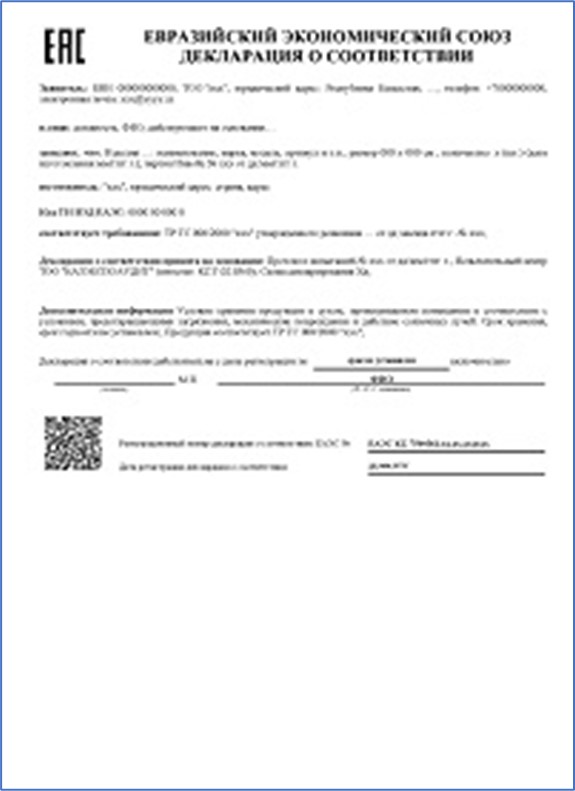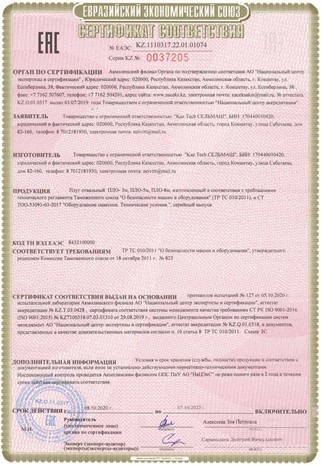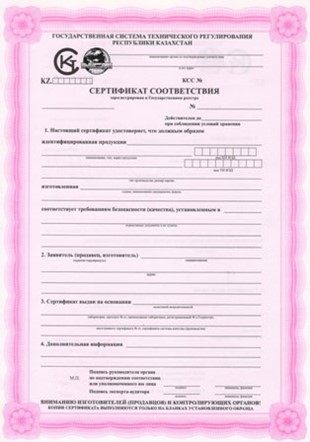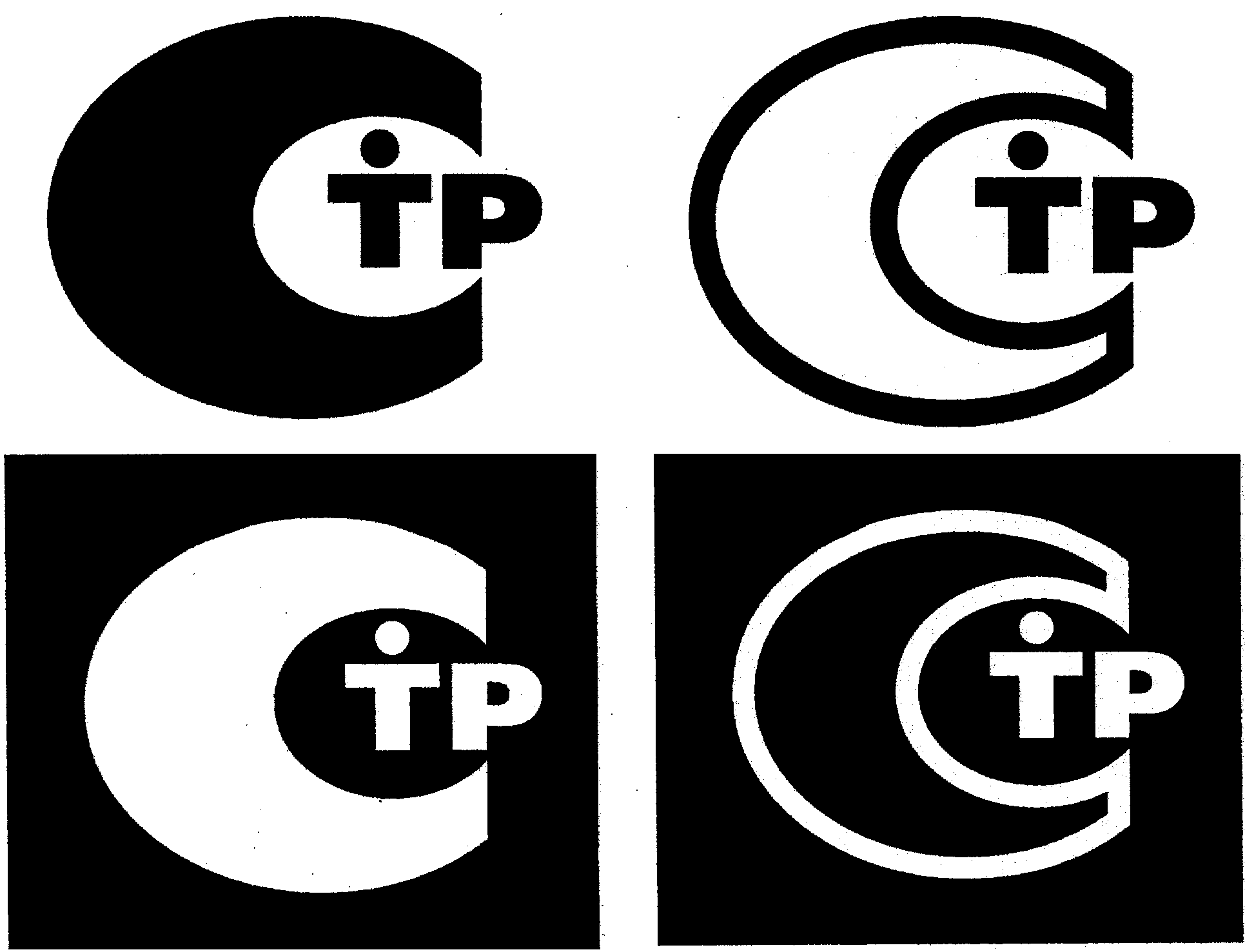Certification in Kazakhstan
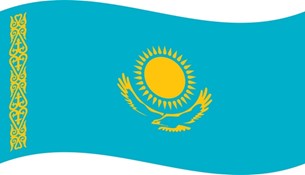
In Kazakhstan, different types of certificates are used, depending on the country of delivery and types of products. The need to provide such a document is determined by the legislation of the Republic of Kazakhstan (an approved list of goods required for certification), and can also be indicated in the requirements of a specific purchase.
To obtain a certificate, you must contact the authorized certification body and go through the conformity confirmation procedure, providing the necessary documents depending on the type of certificate. The result of the procedure will be the receipt of documentary evidence of the object’s compliance with the requirements specified by the technical regulations, standards or terms of the contract.
Confirmation of compliance of products and processes with the requirements of technical regulations and (or) national standards on the territory of the Republic of Kazakhstan is mandatory and voluntary.
***
Mandatory certification – a form of mandatory confirmation of compliance by the body for confirming the compliance of objects of technical regulation with the requirements of technical regulations.
Mandatory certification in the Republic of Kazakhstan (hereinafter referred to as the RK) can be within the framework of the Technical Regulations of the Customs Union (Eurasian Economic Union), in accordance with Regulation No. 621 and Decision No. 44, as well as for compliance with the requirements established by the technical regulations of the RK in accordance with the Rules for Conformity Assessment No. 433-НК. The requirements apply to domestic and imported products. Mandatory confirmation of conformity is carried out only in cases established by the relevant technical regulations and solely for compliance with their requirements.
Confirmation of product compliance with the requirements established by technical regulations is carried out in the form of accepting a declaration of conformity and (or) in the form of certification and issuance of a certificate of conformity.
***
Voluntary confirmation of compliance – a procedure through which confirmation of the conformity of products, processes and services is carried out, carried out at the initiative of the applicant for compliance with standardization documents and (or) the requirements of the applicant.
***
Declaration of Conformity Form
Declaration of Conformity– a document by which the manufacturer, importer, person authorized by the manufacturer or seller certifies the compliance of products, processes and services put into circulation with the requirements of technical regulations and standardization documents. There is no standard form provided for the declaration of conformity. The Declaration of Conformity is generated electronically and signed by the Applicant. The applicant is responsible for the information reflected in the declaration of conformity.
***
Certificate of Conformity Form
Certificate of conformity– a document certifying the compliance of objects of technical regulation with the requirements established by technical regulations and (or) standardization documents. The certificate of compliance with the Technical Regulations of the Customs Union (Eurasian Economic Union) is drawn up on a standard form, signed by the expert-auditor and the head of the Certification Body (CCA) or an authorized person, also generated electronically and certified by the digital signature of the expert-auditor and the head of the CCA or person authorized by him in the technical regulation information system. The certificate of compliance with the requirements of technical regulations and (or) national standards of the Republic of Kazakhstan is generated in electronic form and certified by the digital signature of the expert-auditor and the head of the security organization or his authorized person in the technical regulation information system. The expert-auditor who conducted the conformity assessment, signed the document, and the conformity assessment body are responsible for the information reflected in the certificate of conformity.
***
Form of voluntary Certificate of Conformity
GOST-K
***
Product certification: voluntary and mandatory
The product certification procedure includes the following stages in the technical regulation information system:
1) submission by the applicant of an application for certification (hereinafter referred to as the application) in the form in accordance with Appendix 1 to these Rules in the OPS;
2) consideration by the GPC of the application with the attached documents and making a decision on it, including approval of the product certification scheme based on the product certification scheme chosen by the applicant;
3) conclusion of an agreement for certification work;
4) identification, sampling and testing;
5) conducting an analysis of the state of production (if provided for by the product certification scheme);
6) analysis of the results obtained and making a decision on issuing (refusing to issue) a certificate of conformity;
7) registration of the certificate of conformity in the technical regulation register through the technical regulation information system;
8) formation and issuance of a certificate of conformity;
9) periodic assessment of certified products (if provided for by the product certification scheme);
10) provision of information on the results of certification.
***
All actions carried out between the CA and the applicant, the authorized body are carried out in the information system of technical regulation that meets the requirements of information security and in accordance with the legislation of the Republic of Kazakhstan.
Access to data from the technical regulation information system for its users is provided through the web portal of the authorized body.
When certifying products, the characteristics (indicators) of products are checked, test methods are used that allow:
1) identify the product, including checking whether it belongs to a classification group, compliance with technical documentation, origin, belonging to a given batch, as well as its compliance with characteristics, parameters, indicators and requirements, which together are sufficient to confirm the product’s compliance with technical regulations and standardization document, shipping documentation, supply agreement (contract), specification, label, shortcut and other document characterizing the product. When identifying, the importer’s compliance with the requirements of regulatory legal acts of the Republic of Kazakhstan in terms of the necessary information in product labeling is taken into account;
2) fully and reliably confirm the product’s compliance with the requirements aimed at ensuring its safety for life, human health, environmental protection established in the rules, as well as other requirements that, based on the legislation of the Republic of Kazakhstan, are checked with mandatory confirmation of compliance, subject to the conditions of use, storage and transportation of products.
The composition of other verified characteristics (indicators) is determined based on the purposes of certification of a specific product.
***
How to check the certificate?
It is possible to ensure the safety of a product or service only by going through a bona fide certification procedure. Therefore, we recommend that all manufacturers have certificates of conformity confirming that the product or service will not cause harm to human health and/or the environment.
Business entities can check products for compliance with technical requirements before importing them into the country. For example, in Kazakhstan, the availability of certificates from domestic producers can be checked through the websites www.ks.gov.kz or through www.atameken.kz or in Unified Register of the Customs Union (EAEU).
Considering that Kazakhstan is a member of the Eurasian Economic Union, certificates and declarations issued in Kazakhstan are valid in all EAEU countries (Russia, Belarus, Kazakhstan, Kyrgyzstan, Armenia), as well as documents issued in any EAEU country are valid on the territory of Kazakhstan.
***
Penalty for supplying products without a certificate
The fines in Kazakhstan are not small. If for a small business it is about 200 thousand tenge, then for a medium-sized business it is over 940 thousand tenge. And for a large business entity, the fine will be about 2 million tenge.
